INVESTIGATION: Horror In Southern Kaduna: Untold Story Of Endless Massacres, Plunder By Suspected Fulani Herdsmen (Part IV)
Conspiracy in high places
THE WHISTLER authoritatively reports that the Kaduna State Governor, Nasir El-Rufai, and Nigerian security forces ignored multiple warnings about the looming crisis in Southern Kaduna, and the rampant insecurity and abductions on the Kaduna-Abuja Expressway.
Advertisement
Cycles of violence and kidnappings in Southern Kaduna have led to the deaths of hundreds, and by not acting to pre-empt the bloodshed and lawlessness, some have accused El-Rufai and security agencies of contributing indirectly to the killings and looting in the area.
A former governor of the state, Balarabe Musa, said the violence was “politically-motivated.”
A former Attorney General and Commissioner for Justice in the state, Mark Jacobs, accused Governor El-Rufai of not only taking sides but also speaking for Fulani herders who have constantly killed people and plundered Southern Kaduna communities.
Jacob, who served as commissioner under Governor Ahmed Markafi said El-Rufai has at all times defended the actions of the killers and explained why Southern Kaduna people were being killed.
Advertisement
During a seven-month investigation, our reporter collected written documents, interviews and witness accounts showing that there was reliable intelligence that could have stopped several bloody attacks in the war-weary zone, but the government and the security agencies failed to act.
In the first part of this series, we recorded how, from June 10 to August 21, 2020, suspected Fulani herdsmen massacred 136 indigenous Southern Kaduna people and plundered their villages.
We also reported the chilling tales of 10 Fulani survivors who narrated how suspected youth of Atyap tribe and their allies murdered 85 Fulani from June 11, 2020 to August 2020.
READ PART 2: INVESTIGATION: Horror In Southern Kaduna: Untold Story Of Endless Massacres, Plunder (Part II)
Advertisement
Similarly, 10 indigenous Southern Kaduna survivors were identified and they recounted how heavily-armed Fulani militia unleashed mayhem on more than 24 villages across eight local government areas of the zone.
Details pieced from available records and interviews show how Governor El-Rufai and security agents overlooked vital intelligence, a situation that allowed militia groups to infiltrate and slaughter many in Southern Kaduna villages and settlements.
Our investigation shows that tribal groups and activists provided the governor and security agencies with reliable information about the location and mode of operation of bandits and militia groups responsible for the killings as early as 2016.
MACBAN warns El-Rufai, law enforcement agencies
Confidential reports addressed to El-Rufai and the Nigerian military by Miyetti Allah Cattle Breeders Association of Nigeria (MACBAN) have exposed how the government and the Nigerian military neglected credible intelligence sent to them.
Advertisement
In a letter dated October 18, 2016, which was stamped, signed and received at the Government House on October 20, 2016, MACBAN called the attention of the governor to the existence and activities of criminal elements in Kachia Local Government Area and its environs.
“Things are becoming deplorable; hence we feel duty-bound and obliged to inform Your Excellency and the Kaduna State Government of some goings on; especially the unpleasant, gory and condemnable acts of some criminal elements in Kachia Local Government,” a part of the report reads.
“Sir, we are sad but constrained to say that there are still a pocket of recurring incidences mostly affecting Fulani herders, rustling, abduction, armed robbery, kidnapping, illegal possession of arms and even acts of terrorism as well as perpetration of other criminal activities.
“Places mostly noted for these crimes in Kachia LGA are Jan Dutse, Gidan Sambo, Mashigin Mai Bakko, Turinga, Gidan Auta, Gidan Gajere, Mai Ido Rafi, Mai Goro, Maraya, Atufa, Mashigin Doruwa,” MACBAN tipped the governor.
The group listed the settlements and villages inhabited by the criminals and the routes they use when launching assaults and their retreat routes to make the job of security forces easier.
The bandits were said to have used three major entry and exit points along the Kaduna – Kachia and Kaduna – Abuja roads.
The first entry and exit point is the Crossing-Maro Junction, a road leading to Rijana village on the Kaduna Abuja Expressway by Kilometre 49.
The second entry and exit point is at Sabon-Gari Kachia (Navy-Bus Stop) by the Government Secondary School Kacia.
According to MACBAN, the road leads to Kilometre 67 on the Kaduna-Abuja Expressway at Pole-Wire village (Sarkin Fawa Road Junction).
The third entry and exit point is at Awon Road Junction from Kachia Township on the road leading to Katari located at Kilometre 79 on the Kaduna-Abuja Expressway.
Due to the presence of the violent groups, MACBAN reported that over 100 herders’ settlements have migrated to other parts of Southern Kaduna, noting that the exodus of the herders would further worsen the crisis in the zone.
“Very soon plying the Kaduna-Abuja Expressway and the Kaduna-Kachia-Kafanchan Road will be almost practically impossible as these categories of criminals will completely take over and operate without let or hindrance,” the group had warned.
MACBAN asked the government and security agencies to “set up machineries to ensure that security is maintained on these roads otherwise, peace may soon elude Kaduna State (God forbid).
“Another implication is that the economy of the state will be crippled because these criminals have disclosed that they know buyers of agricultural produce in Kachia, Kagarko and Kajuru local government areas.
“They are even boasting that they have finished with Fulanis, it is now the merchants and farmers that will bear the consequences of their activities.
“There is, therefore, urgent and indispensable need for the government, military, DSS (department of state services) and the Police to carry out sweep operation to save the people of these areas and the economy of the state.
“It will be of good service and for optimum result that the Niger State Government must be involved in this operation for the overall success,” MACBAN had advised.
When the governor and security agencies failed to act forcefully on their report, the group again raised the alarm and called for immediate action in another report to Governor El-Rufai dated October 27, 2016.
The letter, signed by the North-West Zonal Chairman of the group, Ahmadu Suleiman, was stamped and received at Government House on November 1, 2016.
“Your Excellency may recall that our correspondence on “Recurring Incidences of Criminal Activities in some Parts of Kachia Local Government Area” dated 18/10/2016 highlighted the problem at hand.
“We wish to say that much more needs to be done. Again, this month we have witnessed the resurgence of these unfortunate activities.
“Your Excellency, the need for an immediate flush-out operation cannot be overemphasised. If possible, such an operation should be within hours from the submission of this piece.
“Piecemeal operations by the law enforcement agents are not capable of eliminating these crimes and criminals.
“Sir, save our souls, save us and order for a marathon sweeping operation in our area. Please Sir, come to our aid,” Mr. Suleiman had pleaded with the governor.
Not willing to take any chances, the leader of MACBAN wrote to the Commander, Sector 1; Operation Yaki on October 27, 2016, telling him of the presence of criminals in their neighbourhood and the urgent need to get rid of them.
“Sir, it is with deep felt sadness that I am writing to inform you of a kidnapping incidence. On the night of Sunday, October 9, 2016 some kidnappers kidnapped a young Fulani girl, Sa’adiyya from her home (Ruga) in the residence of Alhaji Nawaila in Mai-Ido Kufai village.
“After the abduction, parents of the kidnapped girl secretly traced the kidnappers’ den. The kidnappers are spread (in camps and dens) around Gidan Auta, Gidan Gajere, Jan Dutse and Turinga villages of Akilbu, Doka and Mai-Ido Districts of Kachia Local Government Area.
“In another unfortunate related but different development, an Adara man was killed around Gidan Auta village by men of the underworld.
“This dastardly act has the tendency of causing reprisal and thereby escalating to a full-blown bloodshed or crisis in the area because an innocent Fulani herder may be wrongly accused of the killing.
“A Fulani herder may subsequently be hacked to death, thereby sparking a chain of killings and massacre,” Mr. Suleiman had written to the military.
Despite the letters, top leaders of MACBAN and other Fulfulde organisations who spoke to our reporter insisted that no action was taken.
In a memorandum to the Judicial Commission of Inquiry into the Crisis in Kajuru, Kachia and Chikun Local Government areas, the Chairman of MACBAN, Kaduna State Branch, Haruna Usman, gave a damning rebuke of the government and security agencies.
The group said it was worried that every foundation for the survival of Fulani tribesmen in Southern Kaduna was either shaken or in ashes, maintaining that the looming conflict was predicted and reported to the government and security agencies before it occurred.
“These streaks and cycle of violence at various levels were either reported to the government as a secret Intel or to our ‘vibrant’ security agencies before they occurred.
“This noble association had in 2016 on several instances written alarming reports on the looming catastrophe and crisis that have engulfed us today to the government and designated security agencies.
“In our reports, we had graphically analysed, studied and submitted the strategic placement of the flashpoints, the growing tension within the axis and the emigration of hostile and criminal elements coming in to regroup after they had been degraded from other states.
“It is hereby revealing to mention to the commission that after two to three letters and verbal intelligence reports to the government and some sensitive security agencies, violence erupted on July 17 – 18, 2017 in various settlements scattered around the axis of Kajuru, leaving ashes, tears and heaps of corpses behind,” memoranda had indicated.
While MACBAN did not mention the identities of the emigrated hostile elements into Kaduna at the time of writing the report, a leader of another Fulfulde group told our reporter the immigrants were of Fulani origin.
The source, who pleaded not to be named because of the sensitive nature of the issue, said the government and security agencies were aware of the migration of hostile herders into the region.
“The governor and security agencies cannot say they were not aware of what was happening. Many groups and individuals alerted them, but they decided to do nothing.
“The Fulani who have lived all their lives in Southern Kaduna are suffering because of the activities of the migrants,” the source said.
The crises MACBAN warned about and tried to avert, began to unfold almost immediately after the memos were sent to the government and the security agencies.
Amnesty International in a report released in August 2020 said at least 1,126 villagers were killed by bandits from January to June 2020, adding the attacks threatens the country’s food security.
The report also lamented the failure of the government and security agencies to bring the perpetrators to justice.
In a most recent report released in July 2020, the Human Rights Watch insisted that the police have failed to name the identity of the killers in Southern Kaduna.
“The police haven’t commented on the identity of the perpetrators or the motivations behind the attacks.
“The state governor claimed the recent attacks were carried out by armed bandits terrorising Nigeria’s North-west states, but media reports included witnesses attributing blame to a militia targeting southern Kaduna communities on ethnic grounds,” the international rights groups stated in its report.
While both the police and MACBAN failed to name the killers, Governor El-Rufai in 2016 said the killers were largely armed foreign Fulani herdsmen who came into the country and admitted paying them to stop killing Southern Kaduna natives.
The governor, who spoke on a live show on Channels Television decried attempts by some Nigerians to bring religion or ethnicity into the wanton killings in that part of the state.
“The same Fulanis are killing Fulanis in Zamfara. It is not about religion or ethnicity; this is a pure case of banditry. They are criminals, their ethnicity, their religion does not matter,” El-Rufai had said.
But some victims and critics say some actions and comments made by the governor portray him and the government he leads as being sympathetic and even providing support to those who kill and maimed innocent Nigerians.
Many communities, same story
The people of the Gidan Zaki District in Zangon Kataf Local Government Area said they have no history of conflict with Fulani or any other tribe living in the area.
But between July 10 and 11, 2020 when suspected Fulani militia invaded the villages of Chibob and Sabon Kaura, killing dozens and plundering properties, the people fled the entire district out of fear.
Instead of going after those who killed innocent villagers in their sleep, people who talked to our reporter said the state government and security forces arrested and detained community and youth leaders.
A local, Yakubu Musa, whose real name cannot be mentioned for his security, who had temporarily returned to take his animals away, said Governor El-Rufai had ordered the arrest of the Gora and Gidan Zaki district chiefs after their chiefdoms were attacked.
“After Fulani militia attacked several communities in Gora and Gidan Zaki districts in Atyap land, instead of going after the criminals, the government ordered the arrest of the two district heads and also went for the youth leaders.
“The two district heads were arrested and taken to Kaduna for questioning and their mobile phones were seized. The governor has done that to almost every Southern Kaduna chief whose domain has come under attack by herdsmen.
“Majority of the chiefs will not speak out because the governor has consistently threatened to deal with them if they say anything or even blame the Fulani for the attacks on their communities,” Musa told our correspondent.
Persecuted monarch finally silenced
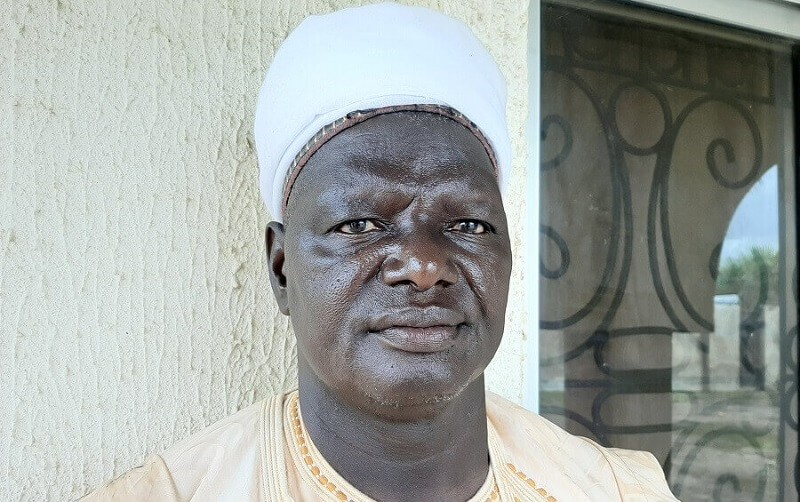
For nearly two weeks in July 2020, our reporter was unable to meet with the district head of Gora, Elias Gora, and his Gidan Zaki counterpart, Haruna Kuye.
Except for security operatives who mounted roadblocks along the roads in the two districts, only a few residents were found trying to remove valuables from their homes to safe locations.
The entire area was under a 24-hour curfew besides a lockdown occasioned by the COVID-19 pandemic.
Attempts to speak to the monarchs on the phone were unsuccessful, as they were said to have switched off their cell phones after they were released by the police.
It was, however, on 1 August 2020 that Kuye, the district head of Gidan Zaki, was able to sneak into Asha Awuche, one of the villages in his chiefdom, to meet our reporter in a deserted compound.
At the time, 11 villages in the district were mostly deserted, except for Asha Awuche, which is located on the highway and had a strong presence of security operatives.
The visibly shaken traditional ruler said that his life and that of his people were in danger and accused El-Rufai and the Fulani militia of masterminding the Southern Kaduna crisis.
Kuye recalled the stories of attacks in his chiefdom, not only listing the casualties and properties lost, but also painting a picture of hopelessness and helplessness in the face of a relentless aggressor.
“When these killings and destructions were done to our people, we were looking forward to SARS (Special Anti-Robbery Squad) arresting the perpetrators but what we got was the police asking us to produce the Kataf youth who caused the problem,” the monarch stated.
“The police arrested me after the killings and kept me for over 24 hours and demanded that I should produce the troublemakers in my kingdom.
“When I was finally freed, we were invited to a meeting with the governor. At the meeting, we told Governor El-Rufai what had happened, and he told us that the Fulani people don’t forgive and that when they are offended, even if it takes 20 years, the Fulani will take revenge.
“After the first meeting, the governor invited us to another meeting with all the district heads where our handsets were seized.
“Some of the district heads got their phones back after three days while others are yet to get their phones.”
Before opening up on his fears, the monarch insisted that he did not want to be recorded, apparently because of the fear of a backlash from the governor, whom he said does not forgive anybody he considered as an enemy.
“Very soon plying the Kaduna-Abuja Expressway and the Kaduna-Kachia-Kafanchan Road will be almost practically impossible as these categories of criminals will completely take over and operate without let or hindrance,” the group had warned.
Assured of confidentiality, Kuye told our reporter that he believed that the governor was monitoring his movements and listening to his conversations on his cell phones.
Kuye said the reason our reporter could not talk to him directly on his mobile phone was because the device had been off most of the time.
He said he moved his family to a safe place, adding that they would not return to Gidan Zaki until their safety was assured.
But he was so wrong to believe that his safety and that of his family could be assured in Nigeria’s epicenter of bloody violence.
Barely three months after the interview and after Kuye and his family reluctantly returned to his home in Gidan Zaki, unknown gunmen struck in the early hours of November 17, 2020 and killed the monarch and his son, Destiny. His wife and daughter survived with life-threatening injuries.
With the killing of the Gidan Zaki monarch, it was almost predictable that his counterpart from Gora would be also targeted.
And the assailants did not disappoint as they launched a brutal attack on the home of the Gora monarch exactly a month after they slew Kuye and his son.
A source who pleaded not to be named for fear of her safety said the gunmen stormed Gan Gora at about 8.00pm on December 18, 2020 and went straight to the home of the district head.
“They shot sporadically and people fled into the bushes just as they made their way straight to the home of our district head.
“Fortunately, Gora Hakimi (Gora chief) wasn’t at home but they broke down the first layer of the security door to the house but couldn’t break the second door.
“Apparently angry, they moved into the neighbouring compounds, shooting and butchering innocent people. They almost wiped out an entire family in one of the compounds,” the source told our correspondent.
Those who were killed in Gan Gora were: Peter Akaho (70), Ayuba Steven Sheyin (67), Jummai Ayuba (55), Ishaya Joel (35), Yakubu Saviour (14), Ayuba Goodluck (11) and Patience Ayuba (6).
Gan Gora was hit three times in 2020 and the first attack occurred on January 17, 2020 when gunmen opened fire on the local market, killing two and injuring several persons.
The second attack occurred on July 20, 2020 and 11 persons were murdered, several others injured and properties looted.
“They have always targeted our monarch, but God has saved the man each time they come. They were able to kill the district head of Gidan Zaki. Now the government claimed they have arrested the killers,” a local who would not give his name said.
“We don’t believe them because we know those who attacked our village. We know the young man who brought the killers to our village and we reported to security agencies.
“They boy was born in this village and he grew up here. He knows everywhere here, and we saw him when he brought Fulani killers here in July. Why have they not arrested him if they are serious? We don’t believe the government,” a man, who gave his name as Bulus told our reporter.
More stories of persecution
A Kaduna-based lawyer, Auta Maisamari, who spoke to Next Edition, accused the Kaduna State government and security agencies of persecution when communities in Kanicho Chiefdom were attacked in 2016.
Sometime in October 2016, Maisamari said armed persons attacked Misisi, Pasakori and Mile One areas.
“Some people dressed in Army uniforms had come into Masisi and lured the village head, John Dogo, and he invited youth leaders to his house in the name of peace meeting,” he said.
“This happened after an initial attack in which the people were displaced. But while the meeting was ongoing, the visitors opened fire on the village head and the other leaders. Simultaneously, attackers invaded the village from behind and razed it down.”
The Kaduna State Police Command at the time confirmed the attack but said only four and not seven persons were killed.
Its Public Relations Officer at the time, Aliyu Usman, who confirmed the attack, said the police had since commenced investigation into the matter.
After the killings in Masisi, Maisamari said some youths from neighbouring Mile One, who were guarding their village, spotted gunmen in the bush fleeing the area and gave chase.
He said the fleeing assailants who might have run out of bullets abandoned three of their rifles in the bush near Gidan Waya
“The village head of Mile One, Laca Garba, came back to his house and found three rifles which were recovered from attackers who were confronted by local youth along the road to Gidan Wayia.
“When the chief observed that the rifles belonged to the police and as a law-abiding citizen, he decided without compulsion to take them to the Police at Kafanchan.
“As soon as the police got the rifles, they arrested him and detained him on October 26, 2016. He was later transferred to the state CID (Criminal Investigation Department) in Kaduna.
“At the time they arrested him they said the three rifles he brought belonged to serving policemen who they claimed were missing. They asked him to either produce those who brought the rifles to him or they would conclude he killed and dispossessed the police officers of their arms.
“The police did not make categorical statements about the identities of officers who had the rifles. The only thing they continued to say was that they (policemen) were missing.
“When they arrested the village head, the police didn’t have the courtesy to inform the District Head of the area, Moses Barde.
“They took him from his house to Kafanchan Division and from there to the headquarters in Kaduna. After some days, the district head felt the need to go and plead with the commissioner of police to release the chief to him so they would go and look for those who brought the guns to his home.
“On the same day, the district head went to bail the village head; he too was arrested and detained,” he told our reporter.
After the two were detained for over one month without trial, Maisamari said he applied for them to be granted administrative bail pending the conclusion of their investigation and because of their failing health and position as traditional rulers.
“They threatened to arrest other village heads and district heads in the area. It was then we decided to file an action for the enforcement of their fundamental rights at the Federal High Court here in Kaduna.
“On the day we went to move our exparte application for the release of the three persons in detention, the judge declined, saying that the personalities involved including the President of Nigeria, the national security adviser, the governor of Kaduna State, the Inspector General of Police and Commissioner of Police are interested in the case.
“Instead of the judge hearing our application based on the Fundamental Human Right Rule, he chickened out claiming they have been warned never to grant exparte application.
“We argued that if the judge will not hear us exparte, he should fix the hearing of the application the next Monday because we approached him on a Thursday. That would have made it one week based on the rule.
“The judge adjourned the case sine die and that means adjourning it without fixing date for the next hearing. I told the judge he is not being fair to us.
“We were compelled to withdraw the case and took it to the state High Court. On the same day, the judge, Mohammed Bello granted them bail but the police quickly filed a first information report in the Magistrate Court alleging offences of kidnap and terrorism, thereby made the case of the gentlemen difficult.
“While the chiefs were being held for committing no crime, the other villages that were not attacked were razed by rampaging herdsmen.
“Over a hundred persons dressed in military uniforms came in and overwhelmed the few policemen and soldiers posted to Mile One and Pasakori and burnt the two villages. No fewer than 50 persons were killed during the attack,” the lawyer had recalled.
Maisamari, the lawyer who spoke to The Next Edition, died suddenly on June 18, 2020 after a brief illness.
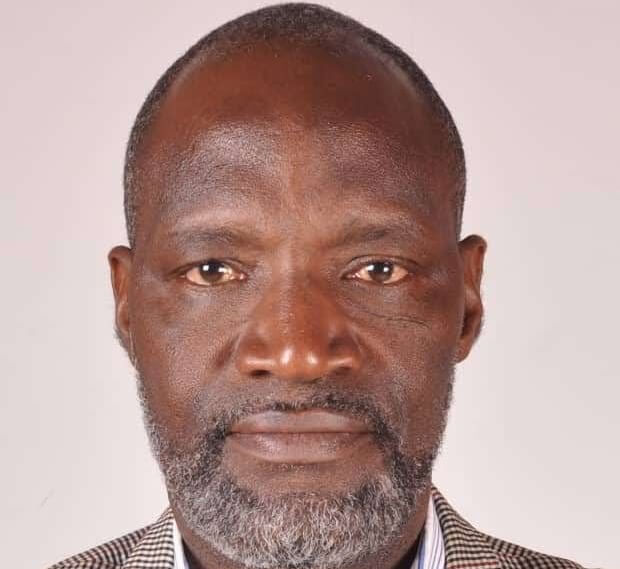
Former Justice Commissioner, Jacobs collaborated the story of persecution of victims of the killings who are of Southern Kaduna indigenous communities.
“When communities are attacked, there is usually no response from the security forces and when they finally move in reluctantly, it is the victims that are arrested particularly youth (who) come out with dane-guns, bows and arrows to defend their communities from the killers.
“I have bitter experiences representing some of these people in court. They are arbitrarily arrested and detained for months. The government has never gone after the attackers.
“We have seen that in Jema’a, Sanga, Kauru, Kajuru, Chikun, and Zangon Kataf local government areas,” Jacob said.
A rights activist and former Kaduna Senator, Shehu Sani, in an interview with our correspondent partly blamed El-Rufai for the worsening Southern Kaduna crisis.
He faulted the governor for constantly saying that the killings in the area are retaliatory, adding that such statements emboldened the killers to do more havoc.
“I can tell you that Southern Kaduna crises are sustained by politics and prejudice and the idea of saying that every killing is revenge would blur us from seeing the reality of the terrorism in the area.
“When terrorists kill people in Zamfara or Katsina or in Niger and parts of Sokoto, they condemn them out right. But when the same people kill in Southern Kaduna, they try to say it is reprisal or try to blame the people.
“With that kind of mindset, they only bolster the terrorists and it seems like they are providing the swords that were used to murder innocent people in Southern Kaduna.
“As far as I am concerned, anybody who has sworn allegiance to defend the Constitution of the Federal Republic of Nigeria should treat every citizen with justice, equity and fairness irrespective of religion, ethnic or political background.
“I believe El-Rufai knows what he is doing. But right now, it is seems there’s a standoff between the government and the people of Southern Kaduna,” Sani said.
On his part, a former Governor of Kaduna State, Balarabe Musa, said the Southern Kaduna crisis is politically motivated and also blamed the government for not providing the kind of leadership that could douse the problem.
“Although I don’t know all the facts; these days you can’t rely on the security agencies for information because they are a part and parcel of the manipulation that is taking place.
“The problem is not in Kaduna State alone. It is a national problem. People are being manipulated to the extent that they fight each other and they claim that they are revenging. I wonder why they are calling it revenge when the same thing is happening all over the country.
The former governor had spoken to our correspondent on August 11, 2020 and died after a brief illness on November 11, 2020.
Government’s Response
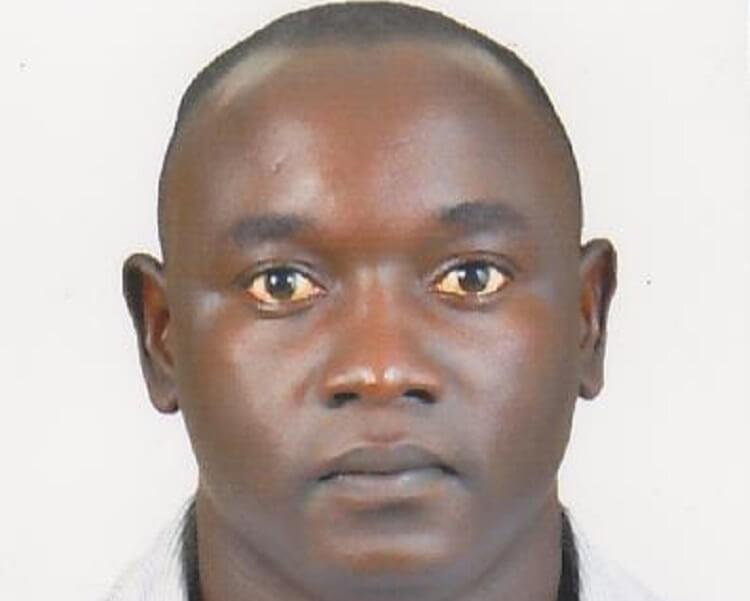
Several attempts were made to have Governor El-Rufai speak to the issues raised in the course of this report.
When all the attempts failed, a letter was dispatched to the governor on October 15, 2020 but no response has been received from him or his aides.
The letter was also sent to the governor and to Kaduna State government on October 16, 2020 via his personal email address [email protected] and [email protected] respectively. There was no response to either letters.
But in a telephone conversation, the Commissioner for Internal Security and Home Affairs, Samuel Aruwan, said that the allegations against the governor are untrue.
“I was in the media office and now I am here (ministry of internal security and home affairs) and I can tell you that I now have a broader understanding of the Southern Kaduna crisis,” Aruwan began.
“I am an insignificant person. I am not the governor. I don’t know the district head of Gidan Zaki. But how will the governor trail the district head?
“These are things that will only prolong the crisis. I am telling you I have seen blood. Every day, I see blood. When I finish talking to you now, I am issuing a statement.
When reminded that the district head of Gidan Zaki complained that the governor was after him, Aruwan said, “I have heard that rhetoric. I have gone to Birnin Gwari, Kajuru, Giwa and across the state and I hear those stories. I don’t know the district head of Gidan Zaki. What has the governor got to do with the district head of Gidan Zaki?
“Some of these will rather complicate the Southern Kaduna security crisis. This is what I just want you to know. The governor did not threaten him. Why would the governor threaten him?
“From what you are telling me now, there is crisis in your report and Kaduna will burn. I am from Kaduna State. I was born in Kaduna and I have lived here in Kaduna. From what you are telling me from MACBAN to others, ‘Walai ta lai’ the state will burn.
“I am not the governor of Kaduna State but I want to tell you with all certainty that it is not correct. I do not doubt what you are saying. I am not also accusing you of fabricating the report. What I am trying to say is that these are conspiracy theories.
“Let me give you an example. In 2011, the Southern Kaduna Muslims said genocide was committed against them and they published a report.
“In 2020, the Southern Kaduna people also published a report that there is genocide against them. Do you understand? So, when I tell you that Kaduna is very delicate and complicated. The more you get closer to Kaduna issue, the more confusing it gets.
“I am inviting you to come to Kaduna so that I will explain to you the Kaduna crisis. But like I said, write a reminder to the governor about your request to interview him.”
Military’s response
The Acting Director, Army Public Relations, Sagir Musa, told our reporter the Army Headquarters was not aware of the intelligence report by MACBAN.
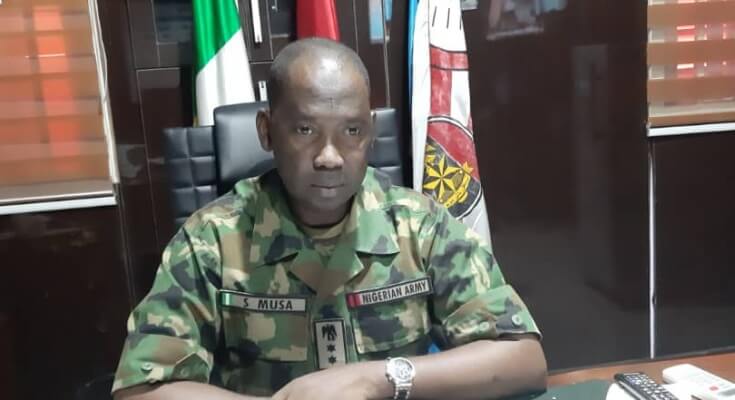
“I cannot speak on that issue because I don’t know anything about it. It is like you are in my seat and someone is sending a letter to a command in Kaduna. There is no way you will know.
“Even the Chief of Army Staff will not know except the letter was forwarded to him because they were incapable of handling a situation and so that the Army Headquarters can help them.
“Or if they need additional troops or they are short of ammunition and want more or they want money before they bring such issues to the Army Headquarters.”
General Musa, however, referred our reporter to the Deputy Director, Public Relations, 1 Division, Kaduna, Ezindu Idimah.
However, in a telephone conversation, Idimah, a colonel, said, “What you spoke about are operational issues and we are not allowed to comment on operational issues.”
He referred our reporter to the Defence Headquarters; saying it is the sole authority vested with powers to speak on operational issues relating to the Nigerian Military.
When contacted on the telephone, the Director of Defence Information (DDI), John Enenche, said he does not respond to sensitive information on the phone.
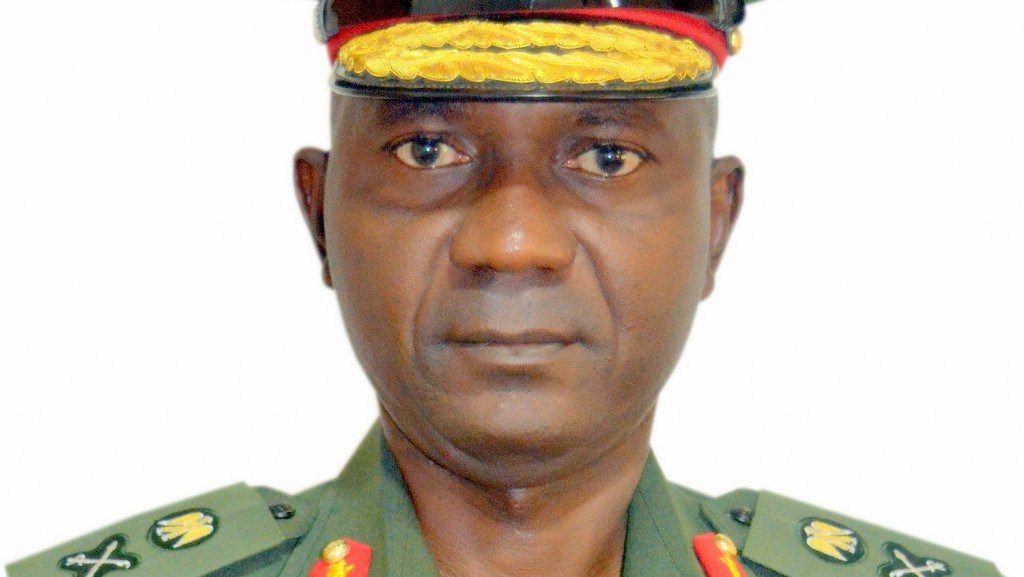
“If you are doing an investigation, I don’t speak on the phone that way. Anything about journalism and the Armed Forces, it is a no no. I don’t discuss it on the phone.
“If you come for our press briefing and you want to clear the air on any issue, come on Thursday. The Armed Forces is very sensitive. I told journalist since March last year that I will no longer speak to the media on phone. Whatever I have said here remains. I don’t speak to journalists on the phone my dear.” Enenche said.
Shortly after the call ended, he sent a text message referring our correspondent to one Commander Sani, adding that the officer would be able to offer a clearer picture to our correspondent.
“Call him and explain what you want to him and say that I directed you to him. He will give you a clearer picture,” the text message read.
But when a call was put to Sani, he barely listened to our reporter when the phone went off and further attempts to call him or send a text message to him were unsuccessful.



